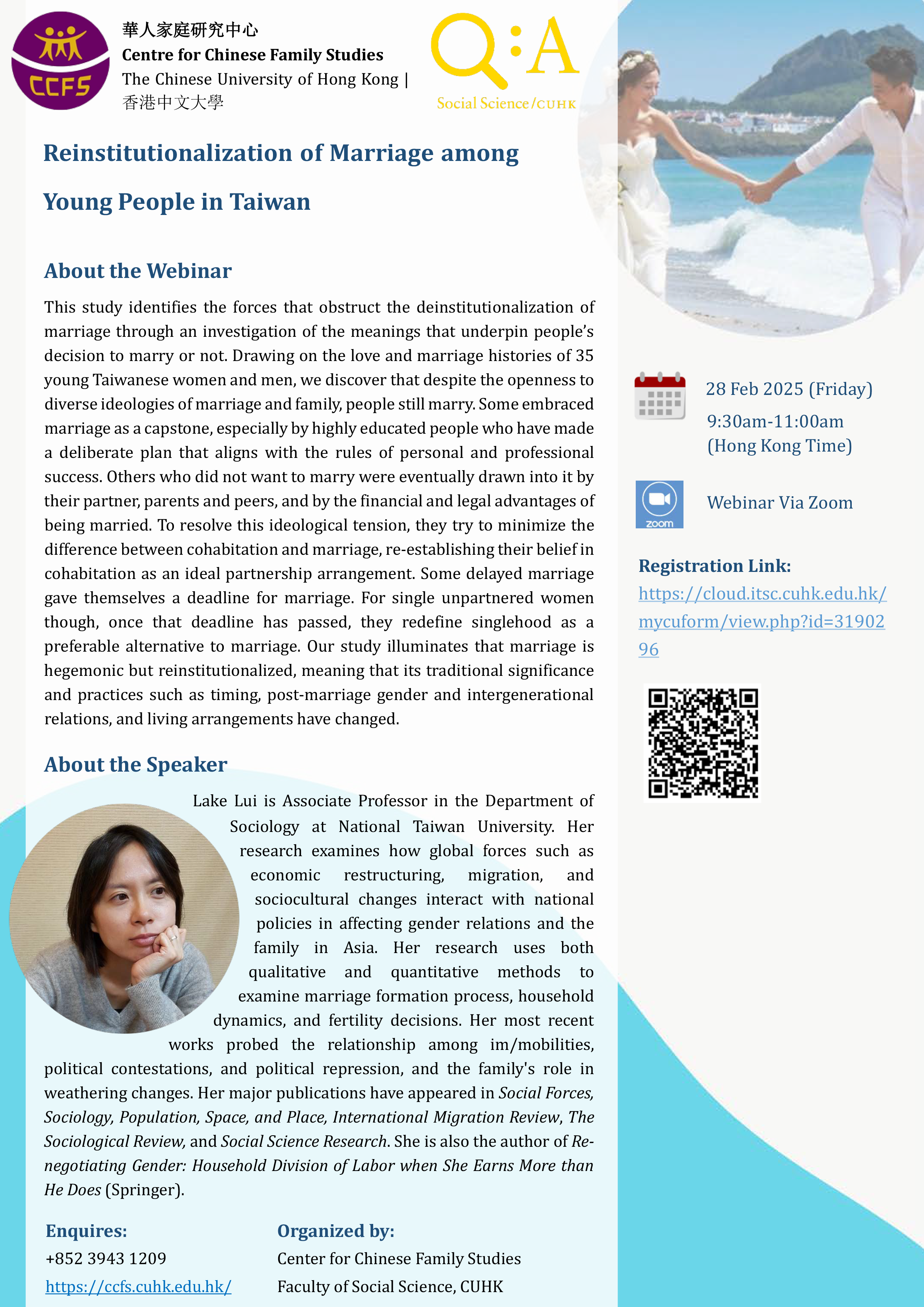Speaker: Prof. Lake Lui, Associate Professor, Department of Sociology, National University of Taiwan
Time: 9:30am-11:00am, 28 Feb 2025 (Friday, HK Time)
Venue: ZOOM (ZOOM Link will be sent to registered audience after finished the e-registration)
Registration: https://cloud.itsc.cuhk.edu.hk/mycuform/view.php?id=3190296
About the Webinar: This study identifies the forces that obstruct the deinstitutionalization of marriage through an investigation of the meanings that underpin people’s decision to marry or not. Drawing on the love and marriage histories of 35 young Taiwanese women and men, we discover that despite the openness to diverse ideologies of marriage and family, people still marry. Some embraced marriage as a capstone, especially by highly educated people who have made a deliberate plan that aligns with the rules of personal and professional success. Others who did not want to marry were eventually drawn into it by their partner, parents and peers, and by the financial and legal advantages of being married. To resolve this ideological tension, they try to minimize the difference between cohabitation and marriage, re-establishing their belief in cohabitation as an ideal partnership arrangement. Some delayed marriage gave themselves a deadline for marriage. For single unpartnered women though, once that deadline has passed, they redefine singlehood as a preferable alternative to marriage. Our study illuminates that marriage is hegemonic but reinstitutionalized, meaning that its traditional significance and practices such as timing, post-marriage gender and intergenerational relations, and living arrangements have changed.
About the Speaker: Lake Lui is Associate Professor in the Department of Sociology at National Taiwan University. Her research examines how global forces such as economic restructuring, migration, and sociocultural changes interact with national policies in affecting gender relations and the family in Asia. Her research uses both qualitative and quantitative methods to examine marriage formation process, household dynamics, and fertility decisions. Her most recent works probed the relationship among im/mobilities, political contestations, and political repression, and the family’s role in weathering changes. Her major publications have appeared in Social Forces, Sociology, Population, Space, and Place, International Migration Review, The Sociological Review, and Social Science Research. She is also the author of Re-negotiating Gender: Household Division of Labor when She Earns More than He Does (Springer).

